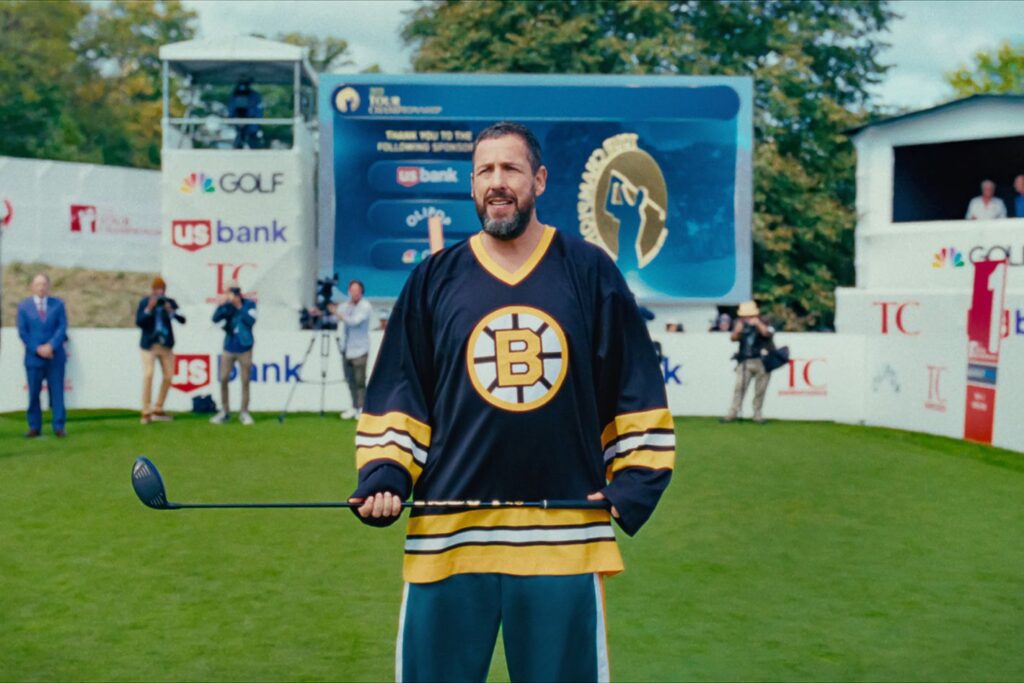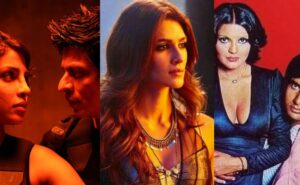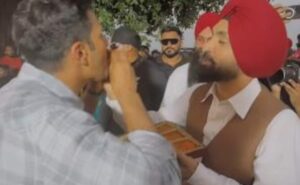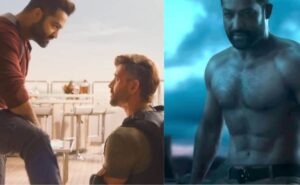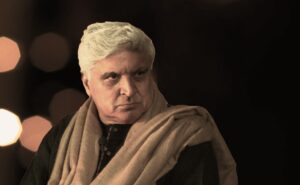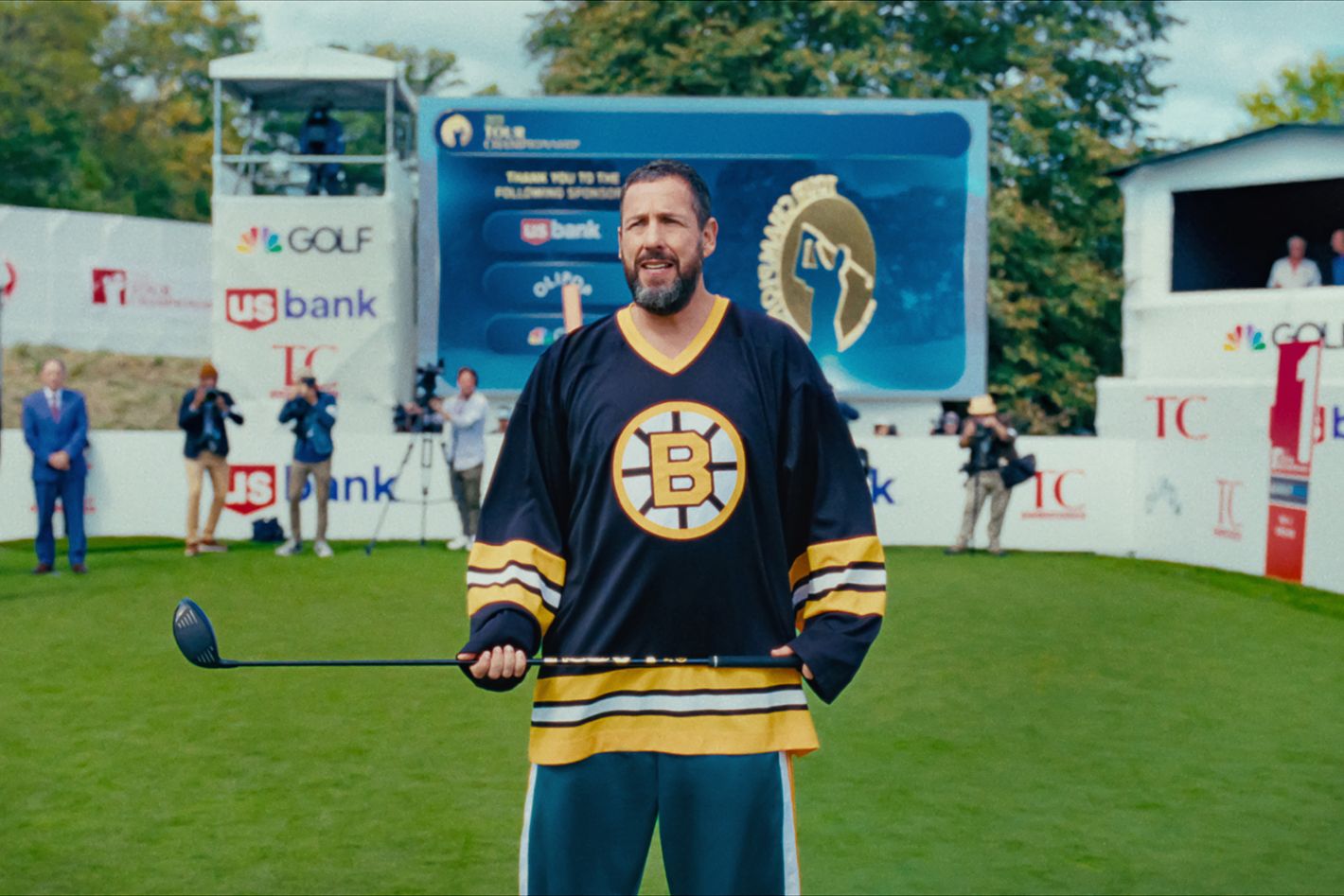
Between the two comedies that established Adam Sandler as a movie star, I was always a Billy Madison partisan. There’s just no resisting its exuberant anarchy — Sandler brutalizing children at dodgeball, Steve Buscemi with his “People to Kill” list and meditative lipstick, and the whole “Everyone in this room is now dumber for having listened to it” speech, the unapologetic battle cry of its funnyman’s career. But 1997’s Happy Gilmore, which Sandler co-wrote and starred in, was probably the better use of his talent for blowing his stack. As the would-be hockey player turned golfer of the title, he was a hot-tempered interloper trampling through the muted, manicured realm of the PGA, a fish-out-of-water scenario richer with potential than the one about a man-child returning to grade school. Sandler was already a Saturday Night Live star by the time he started banging down the door of big-screen success in the mid-’90s, but as a maker of broad comedies that were never given respect by critics even as they became hits, he shared something in common with Happy the outsider. With his work boots and hockey-stick putter, Happy was a gifted zhlub who wasn’t familiar enough with the rules to know when he was breaking them, a populist icon who drove the ball slap-shot style, had regular meltdowns, and nevertheless triumphed at a sport notorious for its stuffiness and exclusivity.
At age 58, and deep into a second Netflix deal worth a reported $275 million, Sandler is about as far from an underdog as it gets these days. Which is one of the reasons that Happy Gilmore 2, which hit streaming today, is such an odd affair — it’s a comedy about an outsider who now finds himself not just a member of the established order, but the main defender of it. The sequel, directed by Kyle Newacheck and written by Sandler and regular collaborator Tim Herlihy, does reestablish Happy as a long shot by killing off his wife, Virginia (Julie Bowen), miring him in grief and then having him lose all his money in a lawsuit. But when Happy decides to pick up his clubs again to pay for his daughter’s ballet academy, he’s welcomed back fondly, joking with golf legends like Fred Couples, Sergio García, and Jack Nicklaus, all playing themselves. Time and profit can turn anyone into a member of the mainstream. And in Happy Gilmore 2, Happy finds himself competing to save the PGA from a start-up that aims to make golf edgier and more exciting, led by a smarmy energy-drink CEO-bro excellently named Frank Manatee (Uncut Gems director Benny Safdie). “I can’t believe that I’m the one sticking up for tradition,” Happy marvels.
If you want to see an allegory about moviemaking in all of this, then it makes sense that Happy, as both an assailer and champion of his chosen industry, has been sent straight to streaming. Happy Gilmore 2’s issues are, mostly, your standard Netflix-movie ones, which is to say that it feels haphazardly made, like it’s just aiming to be good enough. The front half of the film, which lays out Happy’s life as an alcoholic single dad to four O’Doyle-type boys and one girl, is tighter than the second. Both are helped by the inclusion of troubled golf legend John Daly playing a version of himself living in Happy’s garage, eating weeks-old chicken wings, and getting blitzed on hand sanitizer — the unexpected comedic MVP. Still, scattershot laughs aside, Happy Gilmore 2’s efforts at silliness are overwhelmed by a sensibility that’s downright melancholic and overshadowed by death, and not just the impending one of the film industry. It dutifully revisits jokes from Happy Gilmore, but because many of that film’s cast members have died, it has to enlist new actors to play the children of characters originally played by the likes of Carl Weathers and Joe Flaherty. Sandler himself is still game, even if he no longer harbors the same disruptive spark he used to. Instead, he makes jokes about Bengay and aspirin and all the other things you need to keep chugging along when you’re not as spry as you used to be. The dissonance between that meditative quality and a premise as goofy as Happy Gilmore’s is jarring, though it’s hard to blame Sandler for taking the time to look back, no matter the context.
More Movie Reviews
Adam Sandler’s 29-years-later sequel to his hit golf comedy isn’t quite up to the burdens of time.

